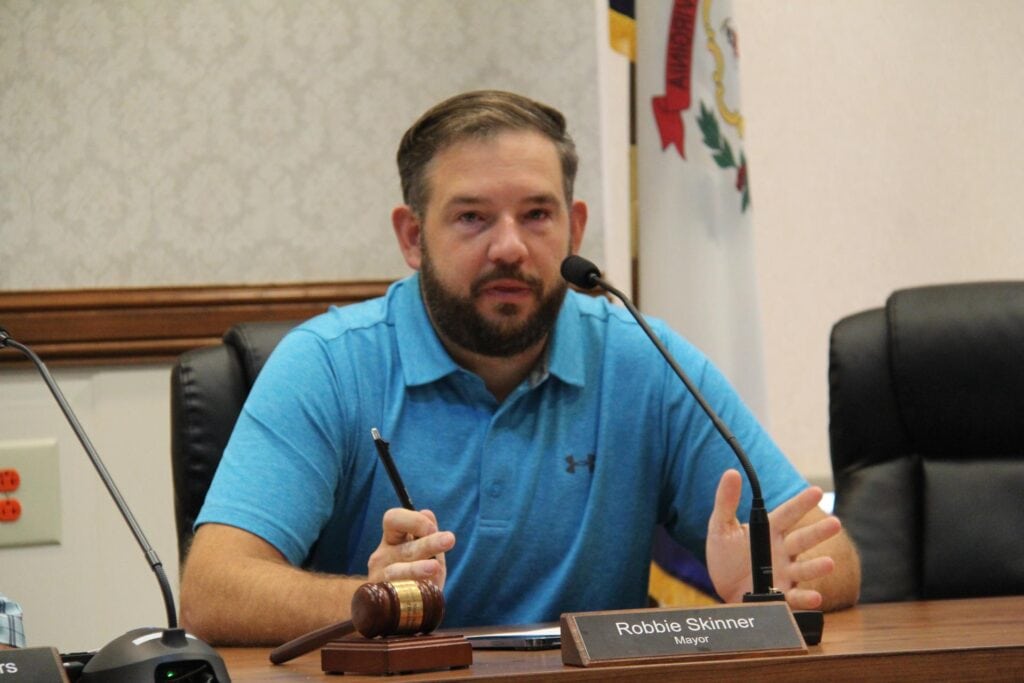Editor’s note: This story was originally published by Mountain State Spotlight. Get stories like this delivered to your email inbox once a week; sign up for the free newsletter at https://mountainstatespotlight.org/newsletter
By P.R. Lockhart, Mountain State Spotlight
It was the middle of fall and Christy Cardwell’s migraines were starting to be too much for her.
She was rear-ended in a car accident in September, and was working with insurance providers in the hopes of reaching a settlement. But her migraines, which were a problem for years, started coming more frequently. She also noticed that she was beginning to lose some sensation in one of her hands, first in the fingertips, then the palm.
But months later, Cardwell still hasn’t had the MRI her doctor recommended. As a public school teacher in Wyoming County, she’s insured through West Virginia’s Public Employees Insurance Agency, or PEIA. And the hospital told her that before she could receive the test she would have to pay hundreds of dollars upfront. That was money that Cardwell, a mom and a teacher for the past 24 years, didn’t have.
She eventually got some relief by working with a chiropractor, but was dismayed by what she has seen as a big change in her insurance coverage.
“With what is supposed to be the gold standard of insurance, I should not have to pay hundreds of dollars just to see why I am having migraines,” she said.
These frustrations are not unique to Cardwell. PEIA insures more than 200,000 teachers, state employees, city workers, corrections and law enforcement officers, and other public employees across West Virginia. For years, the agency has dealt with financial crisis after financial crisis and currently faces a $376 million budget shortfall by 2027.
For the past five years, the agency’s finances and potential insurance changes have been frozen; that’s when Gov. Jim Justice pledged to fix PEIA and allocated $105 million in temporary funding to keep the agency operational without increasing costs for public employees. But with that money set to be used up by 2024, the agency must now grapple with multiple crises that it has avoided addressing.
And as issues mount, the potential costs are coming down hardest on state workers who argue that they cannot afford for PEIA to go unaddressed. Now, as lawmakers eye ways to shore up the struggling agency, raising costs further and decreasing benefits are two options that legislators say must be considered.
“I thought we had some time before things got bad,” Cardwell said. “But we didn’t.”
An employee insurance agency in crisis
Many of the issues facing PEIA are cyclical: increases in medical inflation and prescription drug costs, coupled with market changes, raise the cost of maintaining the insurance. This causes PEIA’s costs to go up almost annually, with the agency requiring a near-constant increase in revenue to remain above water.
Controversies over the agency’s insurance picked up in the 2010s, as people covered through PEIA expressed frustrations with benefit cuts. In 2016, for example, PEIA’s Finance Board approved a $120 million cut in benefits after the Legislature failed to agree on a plan to provide more funding. Teachers have since noted that the cuts have left them paying more in insurance deductibles, out-of-pocket maximums, and copays, making it harder for them to stay on top of their health needs.
“The questions [PEIA faces] are the same, I think as what we faced 30 years ago, but the magnitude of them may be worse,” said Emily Spieler, a law professor at Northeastern University School of Law and a founding member of PEIA’s Finance Board in the 1990s.
The issue has led to a situation where an outcry over PEIA happens every few years, particularly at moments when the agency proposes cutting benefits in order to stave off significant financial issues. PEIA was a major driving factor behind the 2018 teachers’ strike, when Cardwell and roughly 20,000 other West Virginia teachers walked out of the classroom and converged on the Capitol. Shortly before, the agency was considering possible changes to PEIA’s salary tiers that would have required many public employees to pay higher premiums.













